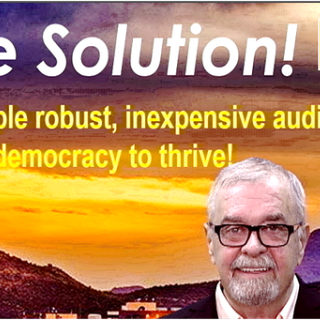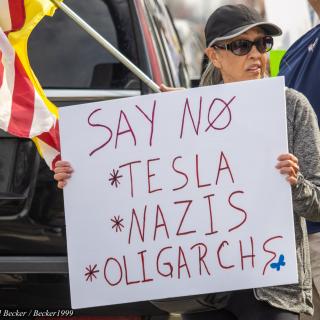Advertisement
Columbus is still in the running to become the home of HQ2 — the second headquarters of Amazon in North America. Amazon narrowed its list of candidate cities down to 20 finalists in January. The company is expected to further narrow the list very soon.
Cities are competing for the privilege of hosting HQ2 with economic incentives. Columbus is offering a 15-year, 100 percent property tax abatement and a 15-year, 35 percent income tax rebate for new employees at HQ2.
Here is what Amazon is putting on the table: investing over $5 billion in building the HQ2 facility, and creating 50,000 high-paying jobs over ten years. The company’s web site promises even more: “In addition to Amazon’s direct hiring and investment, construction and ongoing operation of Amazon HQ2 is expected to create tens of thousands of additional jobs and tens of billions of dollars in additional investment in the surrounding community.”
In other words, HQ2 would create an economic boom in Columbus. Sounds like a sweetheart deal, right?
Not when you look at Amazon’s track record. Since establishing its headquarters in Seattle and becoming the city’s largest employer, Amazon has created an economic boom — for people who are already wealthy. But the cost of living in Seattle has skyrocketed, making in unaffordable for most working people.
Rent in Seattle has gone up 57 percent in the last 6 years. The average one-bedroom apartment costs nearly $2,200 a month. If HQ2 comes to Columbus, we can expect our affordable housing crisis to grow much worse.
To address the housing crisis in Seattle, in April the Housing for All Coalition, Democratic Socialists of America, United Students Against Sweatshops, Socialist Alternative, and many other organizations held a Tax Amazon town hall and protested outside Amazon’s headquarters. They called on Seattle City Council to pass a $150 million annual tax on the top 5 to 10 percent of businesses in the city and use the money to fund affordable housing and services for the homeless. Basically, they were demanding that Amazon and other corporations pay to fix the problem that they created.
Under intense pressure from the growing Tax Amazon movement, but also beholden to big business, Seattle City Council proposed a halfway solution: a $75 million tax. In the run up to the final vote on the measure, Amazon issued an extortionary threat: if the ordinance passed, the company would halt construction on its Seattle headquarters, putting 7,000 to 8,000 construction jobs in jeopardy. By the time City Council passed the measure on May 14, it had been watered down to $48 million.
But Amazon wasn’t finished bullying or making backroom deals. Under pressure from Amazon and other business elites, on June 12 Seattle City Council voted to repeal the tax ordinance, less than a month after unanimously passing it. Daniel Beekman of the Seattle Times called it “a stunning reversal without parallel in Seattle’s recent political history.”
This is the kind of treatment the people of Columbus can expect if HQ2 comes to our city. Amazon’s brutal treatment and exploitation of workers is already here. Out of 6,000 employees in Amazon’s central Ohio fulfillment centers, about 1,500 are on food stamps or other public assistance.
We know that Columbus City Council is always willing to offer generous tax abatements to real estate developers and other big companies in exchange for promises of economic development. But why is Amazon — with assets valued at nearly $1 trillion, the second-richest company in the world — asking prospective host cities for handouts, when it can well afford to pay its own way?
Corporate welfare has been central to Amazon’s business model for many years. CEO Jeff Bezos — the richest person in the world with a net worth of $154.4 billion — has relentlessly pursued a policy of avoiding paying taxes at every turn. Amazon paid no taxes in 2017 on its $5.6 billion profit in U.S. operations.
Amazon’s corporate greed knows no bounds. There can never be enough. When Amazon narrows the list of finalists again, it will up the ante, demanding even more tax concessions from the remaining cities.
If Columbus is still on the list, and our city leaders are true to form, they will give Amazon what it wants, feeding the insatiable giant with money that should be used for schools and other vital services. Columbus taxpayers will foot the bill.
The best hope for Columbus is that our city will not make the next cut.



